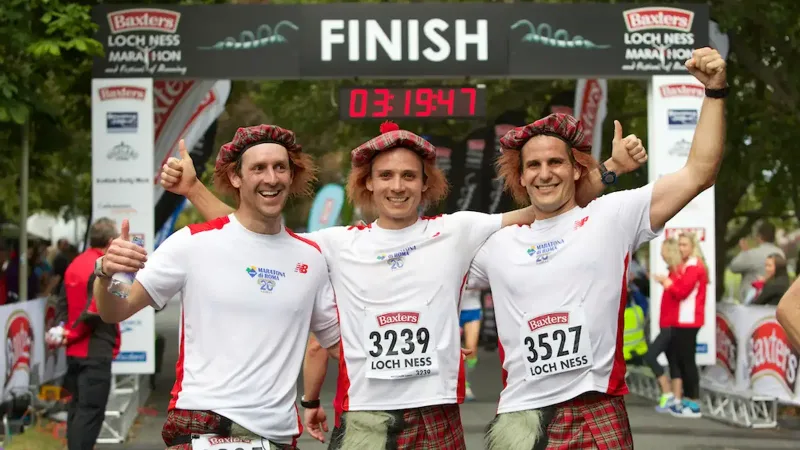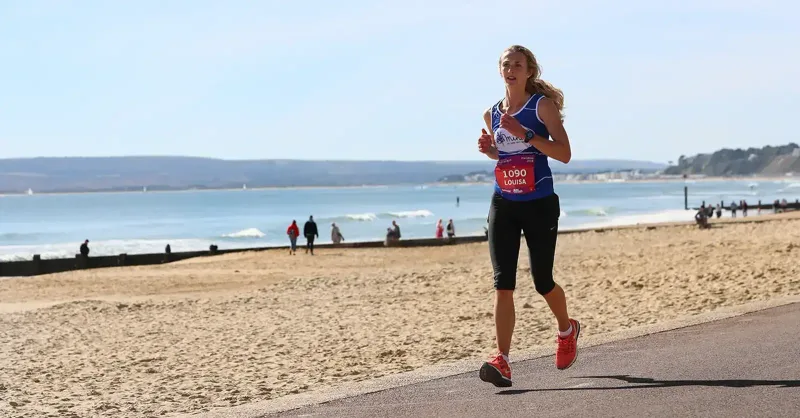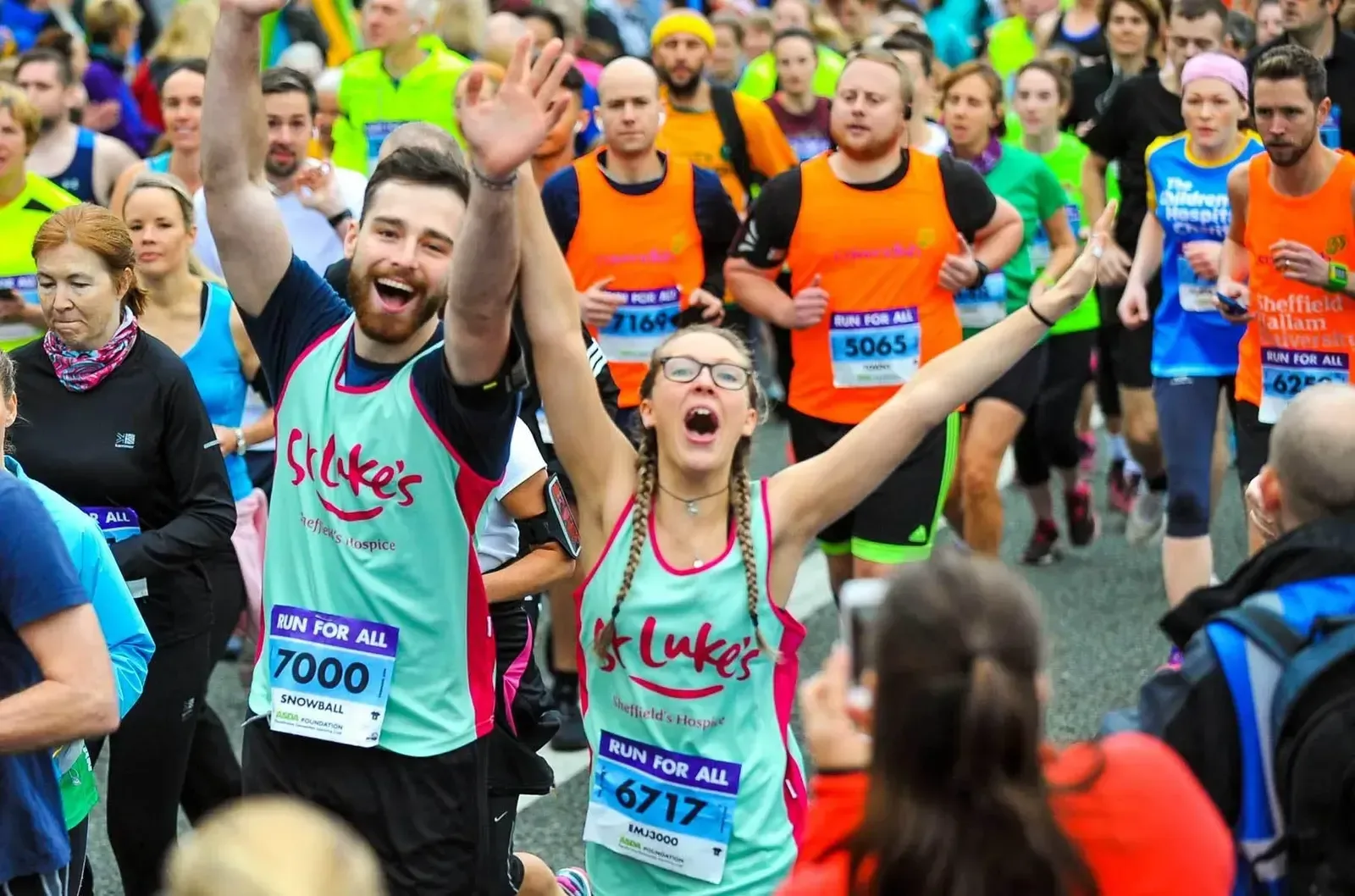What to Eat Before a Half Marathon Run
Preparing for a half marathon goes well beyond training runs and fitness routines. Nutrition plays a key role in determining how well you can perform on race day and whether you’ll achieve the goals you’ve set for yourself.
To have a great race day experience, your body needs adequate fuel to sustain long-lasting energy levels and maintain stamina from mile 1 to the end of the full 13.1 miles. Failure to prepare correctly might just be the difference between smashing a personal best and hitting the wall a couple of miles before the finish line.
If you're wondering what to eat before a half marathon, this guide will provide top tips on understanding pre-race nutrition, carbohydrate loading, meal planning, and dinner recommendations to get you in optimum condition.
Understanding the Importance of Pre-Race Nutrition
Whilst you might understand nutrition pretty well, it's essential to understand the role of nutrition in maintaining high performance during a half marathon specifically. You need to fuel your body for energy, repair, and recovery. The three macronutrients - carbohydrates, proteins, and fats - all contribute to body fuel in unique ways.
Carbohydrates are the primary source of energy for physical activity and long runs. They break down into glucose, which your muscles can use to contract and generate energy. It's important to pack in some carbohydrates before a race to ensure that your body has enough stored glycogen to fuel your muscles throughout the run. Some excellent sources of carbohydrates include pasta, rice, bread, and fruits like bananas and apples.
Proteins are building blocks for muscle repair and growth, and they also provide energy. It's essential to consume enough protein to repair any muscle damage that may occur during the race. Good sources of protein include lean meats, fish, eggs, and plant-based options like beans and tofu.
Fats can serve as a fuel source during a race, as well as a source of stored energy. While carbohydrates are the primary fuel source during a race, adding some healthy fats to your pre-race meal can help you feel more satisfied and provide sustained energy. Some good sources of healthy fats include avocado, nuts, seeds, and olive oil.
Hydration is key, and so are electrolytes
Proper hydration is crucial to maintaining performance over the race distance. You'll need to drink enough water and balance your electrolytes to keep your body functioning at its best. Drinking electrolyte-rich fluids like sports drinks or coconut water can be helpful, especially during long runs or races - but make sure you’re not experimenting with anything new on a race day.
It's also important to start hydrating well before the race, so your body has time to absorb the fluids. Aim to drink at least 500ml of water or an electrolyte-rich drink two hours before the race.
What are Electrolytes anyway?
Electrolytes are minerals that help regulate fluid balance in your body. They're essential for proper muscle and nerve function. When you sweat, you lose electrolytes, so it's important to keep them topped up during a half marathon race. Some good sources of electrolytes include sports drinks, coconut water, and bananas.
When should I be eating before a race?
The timing of meals before a half marathon race is crucial to ensure your body has time to digest and absorb nutrients effectively. Most runners prefer to eat a full meal three to four hours before a race. This meal should be high in carbohydrates, moderate in protein, and low in fat. Some good options include a bagel with peanut butter and banana, oatmeal with fruit and nuts, or a turkey sandwich on whole-grain bread. It goes without saying (but we will anyway) that eating a larger meal too close to the start line will leave you feeling sluggish at best.
If you're feeling peckish closer to the race, try reaching for a smaller snack, such as a few bites of a granola bar or a banana.
As you can see, pre-race nutrition is essential for maintaining high performance during a half marathon event. By consuming the right balance of carbohydrates, proteins, and fats, staying hydrated, and timing your meals and snacks appropriately, you'll be able to fuel your body for success. If you’re not sure exactly what success would look like, check out our what is a good half marathon time guide.
Do I need to carb load to run long distances?
Carbohydrate loading is a technique used by endurance athletes to maximise their body's glycogen stores before a race. The idea is to increase your carb intake in the days leading up to the event, so your body has more usable energy during the race. However, some runners swear by this technique, while others see no difference at all.
Carbohydrates are the body's primary source of energy, and they are stored in the muscles and liver as glycogen. During exercise, the body uses glycogen to fuel the muscles. The amount of glycogen stored in the muscles can affect an athlete's performance, especially during long-duration events like marathons.
How does carb loading work?
Research has shown that carb loading can increase the glycogen stored in your muscles by up to two to three times your typical amount. This increase in glycogen can delay fatigue and improve endurance performance, especially for athletes who run at high intensities for prolonged periods. However, carb loading may not be necessary for events lasting less than 90 minutes like a 10k run or 5k run.
Carb loading involves a depletion phase, where you need to engage in high-intensity exercise to deplete your glycogen stores. This is followed by a loading phase, where you consume a high-carbohydrate diet to replenish your glycogen stores. The depletion phase is typically done a week before the event, while the loading phase is done in the few days leading up to the race.
How to effectively carb load for a half marathon
If you decide to carb load for a half marathon, it's best to do so in the few days leading up to the race rather than trying to pack in a huge volume of carbs the night before. Gradually increase your carbohydrate intake while keeping your overall calorie intake within your needs. Be sure to choose healthy carb sources like brown rice, quinoa, sweet potatoes, and whole-grain bread, and avoid refined carbohydrates.
It's also essential to stay hydrated during the carb-loading phase. Drinking plenty of water can help your body store glycogen more effectively. Additionally, consuming electrolyte-rich fluids like sports drinks can help replace the electrolytes lost through sweat during exercise.
Common carb-loading mistakes
Overeating: One common mistake runners make while carb-loading is overeating, leading to digestive issues like bloating or cramping. Remember to stick to your usual meal portions and gradually increase carbohydrate intake instead of eating large carb-rich meals in one go.
Too much fibre: Another mistake is consuming too much fibre during the carb-loading phase. While fibre is an essential nutrient, consuming too much of it can lead to gastrointestinal distress. Stick to low-fibre carbs like white rice and pasta during the loading phase.
Experimenting on race day: Finally, avoid trying anything new on race day. Stick to the foods and drinks that you've consumed during training to avoid any unexpected digestive issues or energy crashes when the race starts.
Meal planning for the week leading up to the half marathon race
Meal planning can be useful for ensuring that your body is well-fuelled leading up to the race. Proper nutrition is key for optimal performance, and meal planning can help you run to your potential.
When planning your meals, it is important to keep in mind the balance of macronutrients for optimal performance. Macronutrients refer to carbohydrates, proteins, and fats. Each one plays a crucial role in fueling your body and helping it recover after exercise.
Focus on a macronutrient balance
When planning your pre-race meals, try a balance of carbohydrates, proteins, and fats. For example, a meal with whole-grain bread, scrambled eggs, and avocado can provide all three macronutrients to sustain energy and muscle repair. It is also a meal that is easy to come by if you’re heading out for breakfast.
Carbs are the primary fuel source for your muscles during exercise. They are stored in your muscles and liver as glycogen and are essential for endurance exercise. Good sources of carbohydrates include whole grains, fruits, and vegetables.
Proteins are essential for muscle repair and growth. They are made up of amino acids, which are the building blocks of muscle tissue. Good sources of protein include lean meats, fish, eggs, and dairy products.
Fats are also important for endurance exercise, as they provide a source of energy for your body when your glycogen stores are depleted. Good sources of healthy fats include nuts, seeds, avocados, and olive oil.
Sample meal plan
Breakfast: Porridge with berries and almond butter. Oatmeal is a great source of carbohydrates, and almond butter provides protein and healthy fats.
Snack: Greek yoghurt with fruit and nuts. Greek yoghurt is high in protein, and fruit and nuts provide carbohydrates and healthy fats.
Lunch: Grilled chicken with brown rice and roasted vegetables. Grilled chicken is a great source of protein, and brown rice and vegetables provide carbohydrates and fibre.
Snack: Banana with peanut butter. Bananas are a good source of carbohydrates, and peanut butter provides protein and healthy fats.
Dinner: Salmon with quinoa or couscous and green beans. Salmon is a great protein and healthy fat source, and quinoa provides carbohydrates and fibre.
Adjust the plan to your own needs and preferences
Remember that these are just examples, you should adjust this approach to your tastes and your body’s needs. You may need more or fewer calories to perform and may prefer different foods for snacking or meals. Every runner is different, and if you can make nutrition part of your routine it really adds another dimension to your training.
Beyond the right food fuel, it is important to stay hydrated leading up to the race. Aim to drink at least 8-10 glasses of water per day, and consider adding electrolytes to your water or drinking a sports drink during exercise to replace lost fluids and minerals.
By following a balanced meal plan and staying hydrated, you can ensure that your body is properly fueled for the race and chase down that personal best.
What to eat the night before a half marathon
For the pre-race dinner, it is important to keep in mind the ideal macronutrient breakdown. Aim to eat a carbohydrate-rich meal with moderate protein and low fat. This will ensure that your body has enough glycogen stores to fuel your muscles during the race. A meal of pasta with tomato sauce or brown rice, and tofu can provide a great balance of these macronutrients.
Some pre-half marathon race dinner inspiration
Spaghetti marinara sauce with chicken: This classic dish is a great option for runners. The spaghetti provides the necessary carbohydrates, while the chicken adds some protein to the mix. Plus, the marinara sauce is low in fat and easy on the stomach.
Baked salmon with roasted sweet potato and vegetables: If you're looking for a meal that is both delicious and nutritious, this is the one for you. Salmon is a great source of protein and omega-3 fatty acids, while sweet potatoes provide a healthy dose of carbohydrates. Roasted vegetables add some fibre and much-needed flavour to the mix.
Brown rice with stir-fried veg and tofu (or chicken): This vegetarian option is packed with nutrients and flavour. Brown rice is a great source of complex carbohydrates, while the stir-fry veg provides fibre and vitamins. Tofu (or chicken) adds some protein to the mix, making this a well-rounded meal.
Foods to avoid before a half marathon race
While it's important to focus on what to eat before a half marathon, it's equally important to know what to avoid. Certain foods can cause digestive problems like bloating and cramping, which can negatively impact your race. Here are some foods to avoid to keep you in tip-top condition on race day”
High-fat foods: Foods that are high in fat can take longer to digest, which can cause discomfort during the race. Avoid fast foods, fried foods, and fatty meats - a fry-up breakfast of champions might seem like a good idea, but really isn’t advisable!
High-fibre foods: While fibre is important for overall health, it can cause digestive issues for some people. Avoid foods like beans, lentils, and broccoli, which are high in fibre if you’re in this camp.
Spicy foods: Spicy foods can irritate the digestive system, causing discomfort and even diarrhoea - save the curry for the celebration afterwards!
Alcohol: While it may be tempting to have a glass of wine or beer with dinner, alcohol can dehydrate you and negatively impact your performance. It's best to avoid alcohol before a race and instead think of it as your treat afterwards.
Now that you have a better understanding of what to eat before a half marathon, use these tips to fuel your body, perform at your best, and have a fantastic time soaking in the race day atmosphere and chasing down your goals. Not sure what your goal should be? Find out what a good half marathon time is, and if you’re not sure what you’ll need on the day, check out our essential half marathon kit list.
More from the guides

Winter running guide: how to keep running when it’s dark, cold, and you’d rather stay inside
03 Nov 2025
Running through a British winter takes a bit more planning and a lot more persistence than the sun-drenched summer evening jogs. The mornings are dark, the…
Read on
Best Winter Running Events in the UK 2025–26
19 Oct 2025
Looking for winter running motivation? Discover the best UK events for 2025–26, from festive 5K runs and scenic trails to fast half marathons that keep you…
Read on
Fastest 10k races in Scotland – Inverness, Glasgow and beyond
07 Sept 2025
Looking for a quick 10k in Scotland? From the record-breaking River Ness race to Glasgow’s fast park loops and new coastal courses, discover the events that…
Read on
The fastest 10k races in the South West
07 Sept 2025
Explore the fastest 10k races in the South West. From flat seafront routes in Weymouth and Exmouth to the city streets of Southampton and Exeter, find the…
Read on